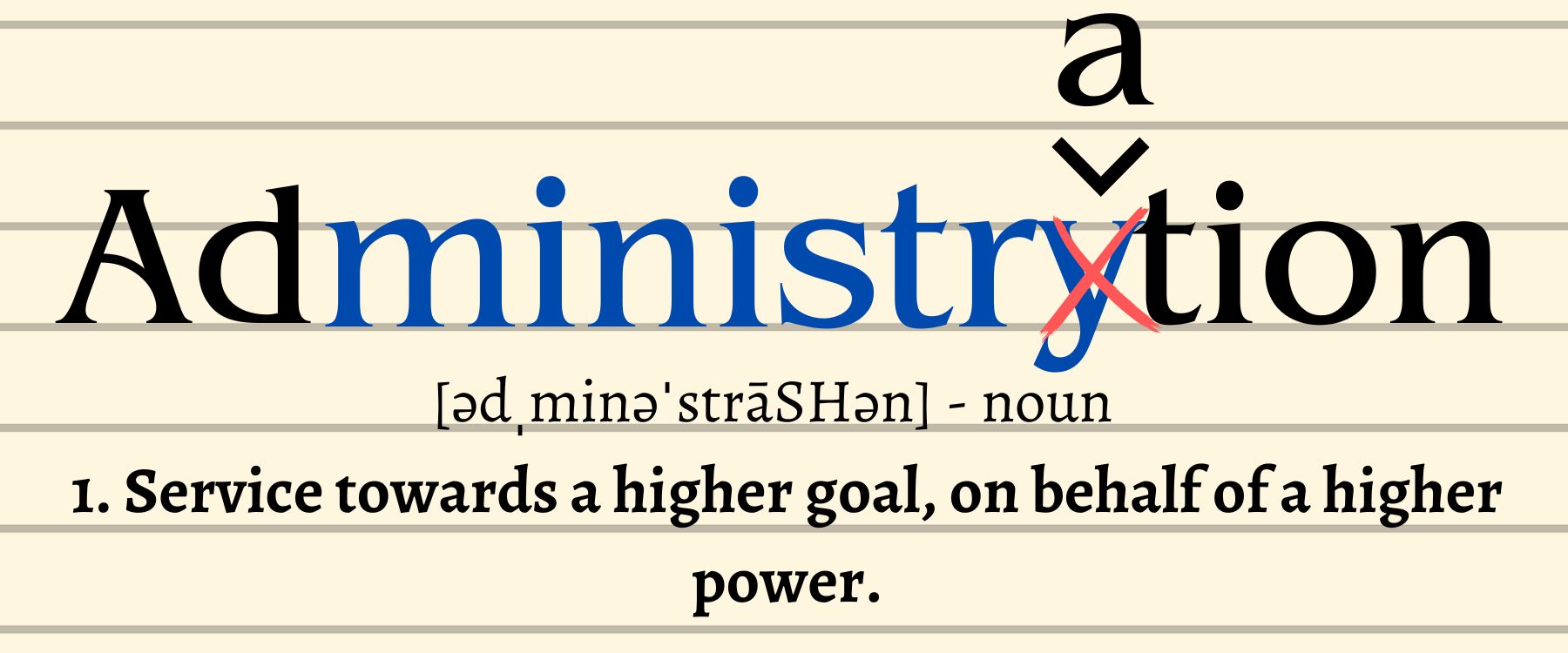Public Administry
A Partial Vision for a “Dominionated World”
You don’t need to be a Latin expert to notice the connection between “ministry” and “administration.” Understanding the etymology of these words can reveal important insights into their meaning and how the world ought to be.
In America, the term “ministry” has come to be primarily associated with religious contexts, yet it is not an inherently religious term. For example, in the United Kingdom, various governmental departments are called “ministries,” such as the Ministry of Agriculture and the Ministry of Defense. This is because “ministry” has its roots in the Latin words “ministerium” or “ministrare,” which relate to service or attending to a higher authority. A “minister,” then, is a servant—perhaps of God or as an ambassador of the president.

“Administration” has its origins in the Latin “ad,” which relates to direction, and “ministratio,” which translates to cooperation, aid, or management. Administration, therefore, involves service towards a higher goal, on behalf of a higher power. A superintendent, for example, is someone granted authority from a higher power and is responsible for managing people and resources to achieve a greater purpose.
I believe that serving in a government role can be just as sacred as fulfilling a religious calling. According to the Bible, the Lord appoints and removes all rulers (Daniel 2) and grants authority to human leaders to act on behalf of a higher power (Romans 13). Both government and religious roles are, therefore, forms of ministry; the differences are simply in role and function.
I encourage Christians, particularly those of the reformed tradition, to pursue positions in what I call “public administry” to emphasize the sacred aspect of the public administration role. Joining the ranks of bureaucrats may seem unappealing due to preconceptions about inefficiency and stagnation. However, I argue that choosing a role like city manager rather than state senator can have a profound impact on building the kingdom for which we yearn. Serving in public administration is a noble, plodding calling.

Local public administration is effective for several reasons. Firstly, working with your neighbors enables you to directly provide resources, protect their rights, and promote what is good, true, and beautiful in your community. Secondly, while many may focus on federal and state power, local government remains a relatively untapped domain, allowing for more significant impact. For example, implementing a pro-life vision in the Office of Children & Youth Services may be more achievable than pushing for abortion legislation. Lastly, Christians with a nuanced understanding of eschatology and sphere sovereignty can effectively navigate the roles and responsibilities of local government with hope and grace.
We strive for a compelling vision of the kingdom here on earth, not a return to a nostalgic past or even the Garden of Eden. We aim for the New Jerusalem—a city rather than a garden; a ‘dominionated’ world. Our role is to reform the present age, restore what is broken, and serve as caretakers of a precious inheritance. We are commissioned to disciple the nations and make them glad in Him; which means restoring what is broken, not waiting around for the rapture.
While this vision may seem intangible and difficult to convey, it becomes more tangible and compelling at the local level, where people can experience it firsthand in their communities. Thus, I urge you to immerse yourself in local government, not just as an agitator but as a contributor. Consider becoming a library administrator, city manager, or parks and recreation director. Embrace administry as a vital part of your calling.
In doing this, we, as the church, can more fully embody our role in the world. Although it may not be glamorous, public administry is one way we can utilize the fruits and leaves of the tree of life to heal nations and create a better future for all.
